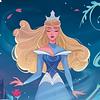Take a photo of a barcode or cover
slow-paced
Plot or Character Driven:
Character
Strong character development:
Complicated
Loveable characters:
No
Diverse cast of characters:
No
Flaws of characters a main focus:
Yes
Really interesting take on a future dystopia - one without conflict and war, but dominated by technological human conditioning to ensure a peaceful, stable society. I know the technical language and somewhat dull characters was intentional, to comment on the loss of individuality, but it did make it rather boring at times.
I also liked being able to read BNW Revisited to hear Huxley's thoughts on the context of the novel directly (eugenics, technology, totalitarianism, human consciousness and conditioning). The beginning sections were interesting, but by the end his insistence on simultaneously judging the entire human race and criticizing such generalizations just came off as pretentious and moralizing.
I also liked being able to read BNW Revisited to hear Huxley's thoughts on the context of the novel directly (eugenics, technology, totalitarianism, human consciousness and conditioning). The beginning sections were interesting, but by the end his insistence on simultaneously judging the entire human race and criticizing such generalizations just came off as pretentious and moralizing.
medium-paced
Plot or Character Driven:
A mix
Strong character development:
Complicated
Loveable characters:
Complicated
Diverse cast of characters:
Complicated
Flaws of characters a main focus:
Yes
Thought provoking.
Prophetic.
Utterly engaging.
I kept reminding myself this was historic dystopian. It was written in the 1930s. Yet so very real. It was downright scary. Bravo! Such a classic read. I can very well see myself revisiting this one and having very philosophical conversations on the text. This one is a half fiction and half non-fiction analysis of the original text. This is a heavy contender with today’s releases within the genre!
Prophetic.
Utterly engaging.
I kept reminding myself this was historic dystopian. It was written in the 1930s. Yet so very real. It was downright scary. Bravo! Such a classic read. I can very well see myself revisiting this one and having very philosophical conversations on the text. This one is a half fiction and half non-fiction analysis of the original text. This is a heavy contender with today’s releases within the genre!
challenging
dark
funny
reflective
medium-paced
Plot or Character Driven:
Character
Strong character development:
Yes
Loveable characters:
Complicated
Diverse cast of characters:
Yes
Flaws of characters a main focus:
Yes
while I enjoyed reading one of the original dystopian future novels, his writing of the new world was too complex and specific for me to fully enjoy.
I have heard many negative reviews of this book from people around me - and most if not all of them thought the book was just really poorly written. It was said to be difficult to get through, with bad narration and boring old language.
Surprisingly, as a non-native speaker of the language, I found it not even half as bad as I was expecting. I rarely had moments where I wanted to drop the book after miserably trying to stay awake, and the last couple of chapters were so exciting for me I finished it all during a plane flight. Maybe when people say it is hard to read, it is not really about the writing techniques, vocabulary, or the tone of the language. I find it difficult to say I fully "understood" the book.
Nevertheless, the book stirred up a lot of thoughts in me. Everything seems so perfectly conditioned, but it also limits our ability to remain human. As we advance the human civilization, to be "civilized" gradually became the polar opposite of to be "human". We suppress and alter our natural instincts through drugs and preconditioning. But to be human is such a wonderful thing. The many difficulties one can face and go through in life makes all the happy moments much more wonderful. There is never anything that is perfect, but that is what makes life so much more worthy of enjoying.
I feel like there is much more to be said, but instead I want to quote the paragraph from the book that moved me the most.
---spoiler alert---
"But I don't want comfort. I want God, I want poetry, I want real danger, I want freedom, I want goodness. I want sin."
"In fact," said Mustapha Mond, "you're claiming the right to be unhappy."
"All right then," said the Savage defiantly, "I'm claiming the right to be unhappy."
"Not to mention the right to grow old and ugly and impotent; the right to have syphilis and cancer; the right to have too little to eat; the right to be lousy; the right to live in constant apprehension of what may happen tomorrow; the right to catch typhoid; the right to be tortured by unspeakable pains of every kind." There was a long silence.
"I claim them all," said the Savage at last.
Mustapha Mond shrugged his shoulders. "You're welcome," he said.
Surprisingly, as a non-native speaker of the language, I found it not even half as bad as I was expecting. I rarely had moments where I wanted to drop the book after miserably trying to stay awake, and the last couple of chapters were so exciting for me I finished it all during a plane flight. Maybe when people say it is hard to read, it is not really about the writing techniques, vocabulary, or the tone of the language. I find it difficult to say I fully "understood" the book.
Nevertheless, the book stirred up a lot of thoughts in me. Everything seems so perfectly conditioned, but it also limits our ability to remain human. As we advance the human civilization, to be "civilized" gradually became the polar opposite of to be "human". We suppress and alter our natural instincts through drugs and preconditioning. But to be human is such a wonderful thing. The many difficulties one can face and go through in life makes all the happy moments much more wonderful. There is never anything that is perfect, but that is what makes life so much more worthy of enjoying.
I feel like there is much more to be said, but instead I want to quote the paragraph from the book that moved me the most.
---spoiler alert---
"But I don't want comfort. I want God, I want poetry, I want real danger, I want freedom, I want goodness. I want sin."
"In fact," said Mustapha Mond, "you're claiming the right to be unhappy."
"All right then," said the Savage defiantly, "I'm claiming the right to be unhappy."
"Not to mention the right to grow old and ugly and impotent; the right to have syphilis and cancer; the right to have too little to eat; the right to be lousy; the right to live in constant apprehension of what may happen tomorrow; the right to catch typhoid; the right to be tortured by unspeakable pains of every kind." There was a long silence.
"I claim them all," said the Savage at last.
Mustapha Mond shrugged his shoulders. "You're welcome," he said.
I can't say I really enjoyed reading this. I understand its importance in the history of dystopian novels like 1984, but I felt that it didn't really convince me of its arguments. It felt like Huxley took control of his characters in it and just started lecturing at the reader, especially towards the end.
I could probably just be not in the mood for this kind of novel too, with the world where its at with Covid/climate change/etc etc. Maybe I'll try re-reading this again someday when hopefully we're all in a better spot.
I could probably just be not in the mood for this kind of novel too, with the world where its at with Covid/climate change/etc etc. Maybe I'll try re-reading this again someday when hopefully we're all in a better spot.






